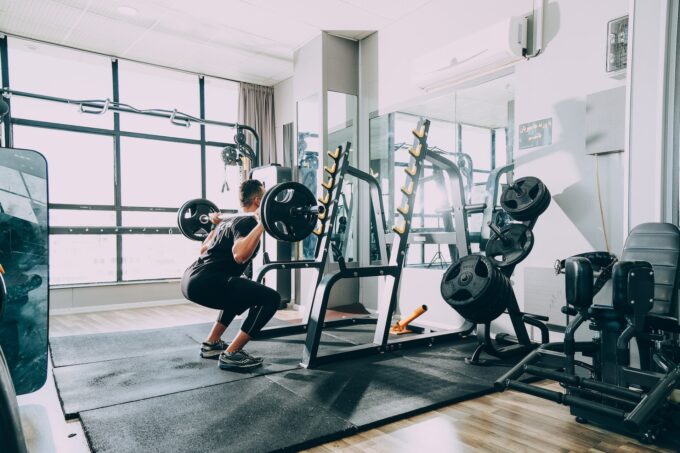Many people who exercise regularly have a clear goal – to lose weight, strengthen their body, or bulk a mass and turn it into muscles.
Is bulking really worth it? If you want to gain muscle mass, then you definitely need to bulk. But if you don’t have much time or energy to dedicate to working out, then maybe bulking isn’t for you.
Bulking helps build strength and endurance. As always, you need to start slowly and gradually increasing the number of meals you eat per day and combine it with exercising.
But, is it possible to bulk without having to spend tons of time at the gym or resort to extreme measures such as fasting or taking steroids?
One way of increasing muscle mass naturally is through the consumption of protein powder and protein-rich meals, learn more and link to jaquishbiomedical.com. This substance contains amino acids, which are the building blocks of muscles. Protein powders also provide other benefits like improving skin health and reducing cholesterol levels.

Source: unsplash.com
Bulking up or building muscle takes time. The key to achieving this goal is consistency. If you want to get bigger and stronger, you need to have a regular exercise schedule. Also, if you click here, you can find interesting things about how to proceed with your fitness activities and nutrition, to accomplish your goal.
If you’re new to fitness or training, you might be tempted to focus on specific muscle groups and parts of the body.
These are a few general things to focus on:
- Start with compound exercises such as squats, lunges, pushups, pull-ups, etc. These are very effective in building muscle mass.
- Move onto isolation movements like bicep curls, triceps extensions, wrist curls, shoulder presses, etc. This will help build your upper body strength.
- Work on core exercises such as crunches, leg lifts, planks, side plank twists, etc. Core training is important because it helps with balance which is necessary if you want to gain weight.
- Add some cardio to your routine by running, cycling, swimming, rowing, elliptical machines, etc.
But, how to do that, without the risk of overdoing it?
1. Start off slow

Source: unsplash.com
One of the biggest mistakes people make when they first begin bulking is trying to bulk up too fast. It’s not about gaining weight – it’s about building muscle mass. Take it slow. Build up slowly over time and don’t worry if you aren’t seeing results right away.
If you start eating a lot of proteins immediately, without proper exercising, you will only gain weight. So, be consistent, and make sure you work with a trainer.
2. Eat clean
Eating clean means eating whole foods that have been grown locally and organically. Avoid processed food and junk food at all costs.
Junk food, even though it contains calories and proteins, can slow down the bulking process because of the fats. Your body will try to burn the fats and lose a lot of energy you can use for mass gain. Instead, eat lots and lots of fruits and vegetables.
You can drink juices because eating that much fresh food is practically impossible.
3. Drink plenty of water

Source: unsplash.com
Your body needs constant hydration. Water helps flush out toxins and keeps us feeling full and satisfied. Drink as much water as your body needs.
The worst mistake you can make is ignoring the body’s needs for hydration.
4. Set realistic expectations
A lot of people want to show off they started bulking. To begin bulking means that you are going to add weight to your body in order to gain muscle mass. If you have been working out consistently for some time now then you may already have gained any amount of muscle mass.
However, your expectations must be realistic, so you won’t get disappointed if you don’t accomplish the results as expected. Everyone’s body is different, and if your friend did that in six months, you may need five or eight, depending on your condition. Don’t set unrealistic goals.
5. Start exercising in a group

Source: unsplash.com
In a group setting, you will be inspired by others who are trying to achieve similar goals. When exercising alongside others, you will feel motivated to push harder than you would alone.
You will also learn from their mistakes and successes to avoid making them. Having someone beside you to motivate, encourage, and inspire you makes all the difference.
6. Be consistent with your routines
To maximize your gains, you need to follow a consistent routine. Keep track of what exercises you do each day and try to maintain a steady pace throughout your workouts. Try not to make changes to your schedule once you’ve started building muscle mass, unless necessary.
If you decide to change your workout routine, make sure that you stay consistent with your old habits until you reach your goal.
7. Increase Protein Intake

Source: unsplash.com
If you don’t consume enough proteins, you won’t get the wanted results. Protein is important for helping your muscles recover after a workout. By increasing protein intake, you will be able to increase your recovery rate.
If you are looking to bulk up faster, then focus on consuming more protein-rich foods, particularly chicken breast, fish, eggs, milk, cheese, yogurt, and whey protein powders.
8. Trust the process
Sometimes things go slower than we expect. In some cases, it can even go faster. But, the goal is to be consistent and to trust the process. You need a lot of patience and dedication, but we are sure it’s worth it in the end.
Listen to your body, and rest if needed. If it wants more challenging exercises, do that. In the end, it’s all about listening to your body and following its needs.
Conclusion
Bulking up is possible for everyone, but the results won’t be the same. That’s why you must set realistic expectations, but also train with a personal instructor, who will guide you through the process. After that, you can proceed alone, or stay in the group, as you prefer.
And if you find the process too exhausting or too challenging, maybe you need to find a better fitting activity for you.







